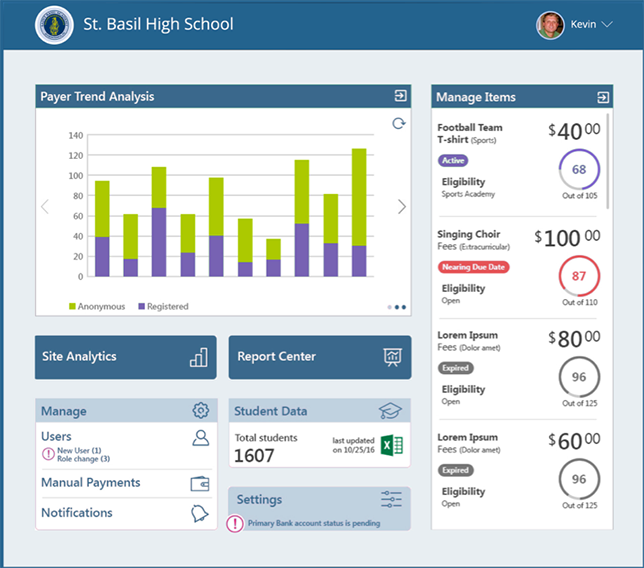Bursari Expands Digital Payment System to Schools Nationwide
Bursari, a Florida-based electronic payment system for schools and families, is expanding nationwide starting today. The platform is designed to provide parents, students and educators with a quick and simple method to make online payments for expenses related to school.
A web-based and mobile-adaptive system, Bursari was created to make easy payments for field trips, activities, lunch, exams, tuition, clothing, club dues, school events and more. Bursari is “a fully secure, PCI-DSS Level 1 compliant platform,” according to a news release. That’s the highest level of financial security available today, said Jerry Banks, founder, chairman and CEO of Bursari.
When using Bursari, “payers are able to see only transactions for their students, and make one-click and recurring payments from their desktop or mobile device,” the release said. Schools can receive funds in their bank accounts in as little as one day.
“What happens at 6:30 in the morning, in the house, when people are scrambling around? All of that chaos, then [parents] find a crumpled up piece of paper in the backpack,” Banks said in an interview. “Today, payments are being digitized. That’s one of the answers — parents and payers and guardians of today are converting to digital. And Bursari leads the world in that regard. Bursari is meant to replace the shoeboxes and piggy banks in the classroom. A lot of time and bandwidth is spent on that stuff, when it can be efficiently and securely digital today.”
Banks came up with the concept five years ago, and the platform has been in technical development for about two years. Bursari launched four weeks ago in six pilot schools, Banks said.

The Bursari dashboard.
Now nationwide, it requires no fee to get started. However, schools need to sign up first, and parents pay a $1.69 fee per transaction, plus merchant (credit card) fees, if applicable.
To learn more about the platform, visit bursari.com.
About the Author
Richard Chang is associate editor of THE Journal. He can be reached at [email protected].